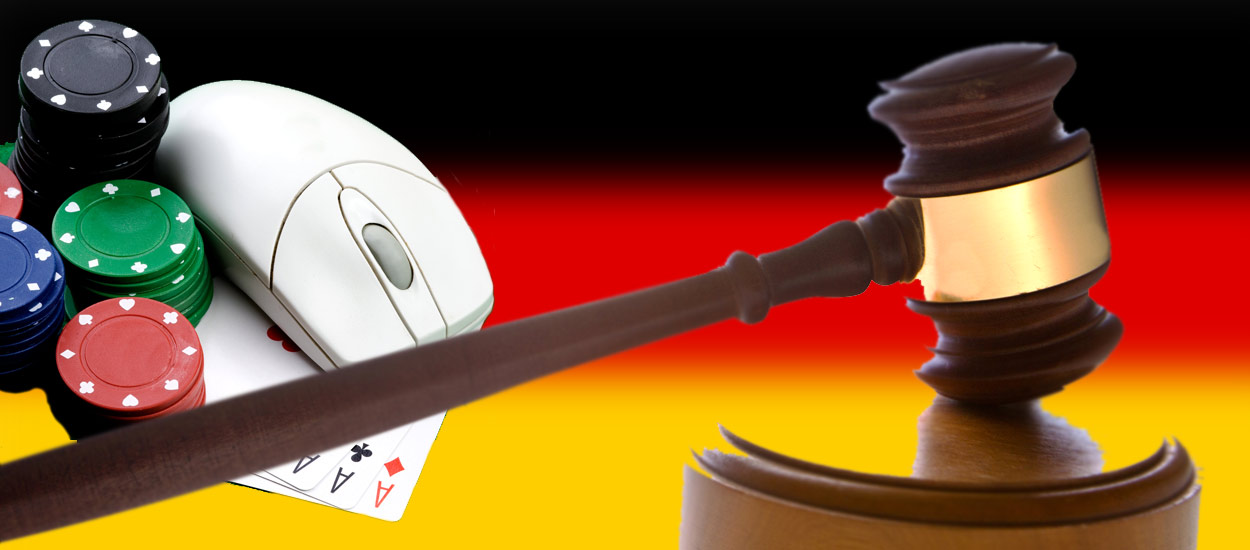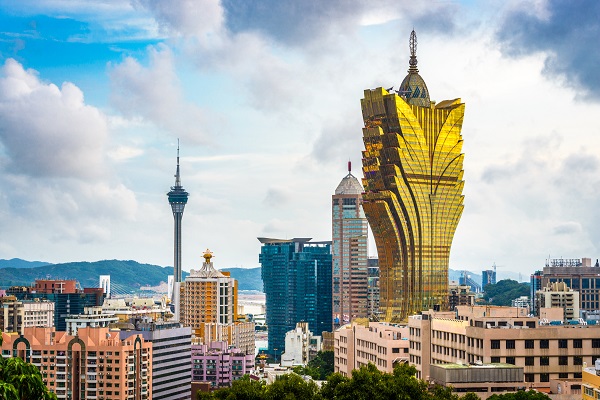Around the world, 2020 was without question the most frustrating year for gambling in recent times. When the year started it appeared that the industry was set for huge advances, especially in Germany, Macau and Japan. But that all came crashing down, thanks to COVID-19. Instead the industry went through one of the most difficult years it ever faced. Instead of talking about growth and new markets, the most talked about topic was simply survival. Thus, the common theme in most of the top stories of 2020 will be related to the Coronavirus.
I'll start out with the 5th topic and move around the globe to find the top 5 gambling stories of 2020.
5. The effect of COVID-19 on International sports and gambling markets
When looking at the five main stories outside the United States in 2020, I felt it would be irresponsible to not consider the effects of COVID-19 in Europe, Asia, Oceania, Africa, Canada and Latin America. While most everyone knows how COVID-19 affected American sports and casinos, the rest of the world was hit just as hard. Some of the biggest events that attract the most betting each year were either cancelled or postponed as governments focused their attention on defeating the virus and leagues made sure that precautions were put in place to ensure the safety of competitors and fans alike.
The following are just a sample of very popular events which attract a lot of betting which had to be cancelled or put off. The 2020 Summer Olympics scheduled to take place in Tokyo in July was postponed for a year until July 2021. And most qualifying events around the world were cancelled to accommodate for the new date.
The 2020 Summer Olympics scheduled to take place in Tokyo in July was postponed for a year until July 2021. And most qualifying events around the world were cancelled to accommodate for the new date.
Euro 2020, a soccer championship which generates millions in betting each day and was scheduled to take place in June 2020, was postponed to June 2021 after border closures and fan restrictions convinced UEFA to put the tournament off for a year.
The British Open Golf Championship along with the Women’s Open championship were cancelled.
The Six Nations Rugby Championship was postponed indefinitely.
The Gaelic games, a very popular event in Ireland, had to be suspended indefinitely.
The Grand National horse race in London, England was cancelled.
All Alpine skiing events, a very popular gambling option in Europe, scheduled in March and April 2020 had to be postponed until this winter.
All South American soccer championships, including the 2020 Copa America championship, until at least January 2021. And all FIFA World Cup Championships were postponed by at least four months with the CONCACAF Gold Cup moved to July 2021.
In New Zealand, the three main soccer championships were cancelled there.
Formula 1 was off for several months due to the pandemic and only raced in Europe and the Middle East. All races in Asia, Australia and the Americas were cancelled, and most races took place without spectators.
The World Figure Skating championships in Canada were cancelled, along with most curling championships.
The 2020 European Curling Championships were cancelled.
Several soccer events in Africa were suspended indefinitely.
And the list can go on for pages and pages.
Aside from the postponement and cancellation of games and tournaments due to COVID-19, almost all games that did take place were generally played in empty stadia to protect fans. And, when fans were allowed to attend, the number of spectators was very restricted, meaning that the competitions lost money anyways. According to the accounting firm Deloitte, the top UK soccer league was set to lose around 1 billion GBP or about $1.7 billion USD in 2020 due to the effects of COVID-19. According to some sources, the global cost to sports leagues as a result of the cancellation of games and limiting attendance was well over $100 billion USD and could be as high as $200 billion USD.
As for gambling effects, like was the case with the United States, they depended on whether the country allowed online gambling. The UK Gambling Commission indicated that online betting on sports was up by almost 15% for games that were played, while land-based gambling saw virtually no revenue. And in every other country online gambling rose as bettors looked for something to bet on while any land-based wagering, whether on sports or casinos was minimal. Horse racing betting was actually up for the dates it was open in most countries, as bettors turned to the one sport that really never shut down but overall wagering on even that sport was down since there was less total racing dates for the year. Naturally overall betting was down due to the reduction in games, but online gambling minimized the losses.
While Americans look at the year that was and shake their heads at the cancellation of tournaments like March Madness and the lack of fans in their stadiums, a look around the globe shows that the impact of the Coronavirus on other countries was just as hard.
4. Offshore operators delve into more sports betting partnerships with U.S. companies and governments Ever since the U.S. Supreme Court repealed PASPA in 2017, UK companies started eying the U.S. market as a way to expand their profits. Betfair was the first to make a move to the U.S., buying TVG Horse Racing in an effort to get a foothold in the U.S. market, while anticipating legal sports betting some day. This was followed by William Hill in 2012, which bought Lucky's sportsbook and American Wagering Inc. and set up sportsbooks at Caesars casinos in Las Vegas. Other companies also eyed the U.S. sports betting market, although thus far they have stuck with casino wagering in New Jersey, Pennsylvania and Delaware. Betfair who merged with Paddy Power and eventually became Flutter Entertainment bought out the fantasy sports site Fan Duel and used that name as the sportsbook brand for its U.S. product. And very recently it was announced that Caesars Entertainment would be buying the U.S. portion of William Hill, while the non-U.S. portion of William Hill would be sold to another interest.
Ever since the U.S. Supreme Court repealed PASPA in 2017, UK companies started eying the U.S. market as a way to expand their profits. Betfair was the first to make a move to the U.S., buying TVG Horse Racing in an effort to get a foothold in the U.S. market, while anticipating legal sports betting some day. This was followed by William Hill in 2012, which bought Lucky's sportsbook and American Wagering Inc. and set up sportsbooks at Caesars casinos in Las Vegas. Other companies also eyed the U.S. sports betting market, although thus far they have stuck with casino wagering in New Jersey, Pennsylvania and Delaware. Betfair who merged with Paddy Power and eventually became Flutter Entertainment bought out the fantasy sports site Fan Duel and used that name as the sportsbook brand for its U.S. product. And very recently it was announced that Caesars Entertainment would be buying the U.S. portion of William Hill, while the non-U.S. portion of William Hill would be sold to another interest.
In 2020, however, things also started changing on the media front as non-U.S. gambling companies set up partnerships with U.S. media companies to ensure their names got out to the public. Flutter Entertainment bought Stars Group (PokerStars) for $7 billion to take advantage of a joint venture the Stars Group signed with Fox Sports in the prior year, and MGM finalized a partnership they had with Yahoo to ensure they had a media platform as well. Yahoo provides live streaming and interactive sports betting platforms for use on the BetMGM website. And to ensure they were not left out in the cold, in February of this year William Hill partnered with CBS, whereby CBS promotes William Hill sports betting odds across all its channels. William Hill was dealt an unforeseen blow in the agreement, however, when March Madness was cancelled, an event William Hill hoped would separate them from the other sports betting companies in the eyes of American sports bettors.
It wasn't just U.K. companies that took advantage of the PASPA repeal, however, and the new philosophy on sports betting. In September BetCris signed an official sports betting partnership with the NFL which allows BetCris to use official NFL data for the creation of odds, as well as using any trademarks and branding which was one of the issues that caused trouble for World Sports Exchange in its early days. The partnership is only for the Central and South American markets, although no doubt they are making this deal in an expectation that one day BetCris will be a legally licensed bookmaker in the United States and the partnership with the NFL will prove more valuable.
While it may seem far-fetched that BetCris could ever get licensed in the U.S. given its history of taking bets from Americans prior to the passing of the UIGEA not to mention its affiliation with Bookmaker.eu, one only needs to look at what happened with 5Dimes to show that in these strange times anything is possible. On September 21st the offshore sportsbook 5Dimes, who has happily been taking bets from Americans non-stop since its inception, shockingly sent out an announcement that U.S. citizens could no longer bet on the website and told customers to withdraw any balances from their accounts by September 30th or they could forfeit any money in those accounts. Moreover, any future wagers were deemed void and money returned to the accounts. The company indicated in the announcement they were not gone for good and would someday "legally" return to the U.S. market which left everyone scratching their heads. Given their past actions there was no possible way anyone believed they would get provenance in the United States, but the motive for the account closures was quickly answered in November when it was announced that Laura Varela, the widow of 5Dimes owner Sean Creighton who was killed in Costa Rica in a botched kidnapping attempt in 2018, had settled with the DOJ for $46.8 million. Under the terms of the agreement, Varela (who the DOJ said had no part in the gambling business) would be completely exonerated and consequently could proceed in her plan to set up a legal sportsbook in New Jersey. It’s uncertain if Varela plans to actually start a site in New Jersey or whether she’ll just sell the betting platform, the technology and perhaps the client lists to an existing sportsbook in exchange for more cash or a portion of the profits, but what is certain is the compensation to the DOJ was clearly worth her while and she can now live in the United States without fear of prosecution which apparently is something she’s been after since the death of her husband. The DOJ even indicated they would help her in her endeavors. In the meantime, 5Dimes continues to cater to non-U.S. customers without any input from Varela and is still doing well.
The invasion into the U.S. market by all these companies makes it clear that the whole American landscape has changed. What seemed impossible only four years ago is not only possible now but welcomed.
3. German sports betting law becomes even more confusing
Last year it seemed that the national government in Germany, the state of Schleswig-Holstein and online casino and sportsbook operators came to an agreement they could all live with regarding online gambling. The government said that they would come up with a new national licensing scheme in July 2021 for online gambling that would lift the set number of licensees, would allow casino gambling and would give Schleswig-Holstein its fair share. At the same time, they wanted Internet casino companies to apply for an interim license until the new licensing scheme became law. The interim license mandated that casino operators applying for a temporary license had to be approved by the national government, had to pay a hefty tax, had to block Germans from accessing casino products and also had to agree not to advertise in Schleswig-Holstein, if they had a license there. A survey conducted in 2019 by a German gambling company gave the government some belief they were doing the right thing with the new licensing scheme, although it also raised concerns. The survey showed that almost 70% of Germans approved of the country licensing operators and indicated they would play at a legal online German casino if given the choice. But almost 30% said they would still play at a non-German casino over a licensed German website for various reasons, including better promotions, gaming options and payment options. A few companies considered applying for the interim license, but at the beginning of 2020 the proposed rules for the July 1, 2021 program came to light, which included that all slot games have to last at least 5 seconds, there would be strict deposit limits, there would be low maximum stakes on slot games, there would be no jackpots, companies would be allowed very limited if any advertising for casinos, there would be no cross promotions between sports and casinos and lastly, there was a rule that casinos could only have one vertical aimed at Germans. These rules were seen as draconian which made most operators including Bet365 decide not to apply for either the interim license or a national license in 2021.
A survey conducted in 2019 by a German gambling company gave the government some belief they were doing the right thing with the new licensing scheme, although it also raised concerns. The survey showed that almost 70% of Germans approved of the country licensing operators and indicated they would play at a legal online German casino if given the choice. But almost 30% said they would still play at a non-German casino over a licensed German website for various reasons, including better promotions, gaming options and payment options. A few companies considered applying for the interim license, but at the beginning of 2020 the proposed rules for the July 1, 2021 program came to light, which included that all slot games have to last at least 5 seconds, there would be strict deposit limits, there would be low maximum stakes on slot games, there would be no jackpots, companies would be allowed very limited if any advertising for casinos, there would be no cross promotions between sports and casinos and lastly, there was a rule that casinos could only have one vertical aimed at Germans. These rules were seen as draconian which made most operators including Bet365 decide not to apply for either the interim license or a national license in 2021.
The lack of interest in interim licenses became concerning for the German government, although most of the country's gambling revenue was derived from land-based casinos. But then disaster struck after COVID-19 hit Germany and hit it hard. With Coronavirus cases and deaths piling up, few Germans were willing to go to any land-based casinos, albeit the majority were closed anyways. So German gamblers turned to online gambling, which of course was only available from non-German websites or from websites licensed in Schleswig-Holstein. There was more than a 50% increase in signups from Germans at those casinos and there was really nothing the government could do about it since none of the operators were applying for a national license under the new rules. To add fuel to the fire, Schleswig-Holstein announced that in light of the pandemic their licenses, which were scheduled to expire on July 1, 2021, were now being extended to 2024. And realizing that they had the ball in their court, most non-German companies that were considering applying for a license in 2021 said they would not do so unless the rules were eased and they could operate as they usually do. As a result, a few German officials have now suggested abandoning the 2021 date and are recommending allowing casino operators to not only cater to German customers in their usual format, but also not require those companies to set up a physical presence in Germany, which would be a huge cost savings. Instead the casinos would be required to separate play from German customers and pay the mandated tax on any winnings from these customers direct to the German government, similar to what is being done in the U.K. This would attract more interest and would be acceptable to the EU.
So, it now seems that the German government has fallen victim to the Coronavirus and realizes that if they ever want to make money from online gambling, they will have to agree to terms that less than a decade ago seemed a no-go. Fortunately for German bettors this will work in their favor.
2. China increases crackdown on gambling
China had indicated for some time they would be cracking down on gambling, but in 2020 they took it to the next level. Threatening any neighboring country that accepted gambling from Chinese residents, Cambodia cut off any visits from Chinese travelers and other countries were keeping a close eye on the proceedings. Junket operators providing trips for Chinese natives to the Philippines, Vietnam and Australia were also put on notice by the Chinese government and while not listed by the Chinese government specifically, it is likely that Japan will be told they are off limits to junkets as well. That possible threat alone caused analysts to lower the revenue expectations of the new Japan resort casino, a point which will be discussed in the #1 story of 2020. Moreover, the Chinese government provided financial incentives to any residents who are willing to provide information on neighbors that were visiting non-Chinese jurisdictions to gamble and ISPs were told to block any advertising from casino operators or face prosecution. A search engine operator proved just that when he was arrested for allowing gambling links on the search engine and a payment processor was issued a $9 billion USD fine for accepting payments for online gambling. Macau was not on the list of countries that Chinese residents couldn't visit, but the government continued a crackdown on junkets, which they branded as corrupt, and it seems the Chinese government has another reason to encourage Chinese natives to visit Macau. The passing of Stanley Ho in May of 2020 seems to have emboldened some government officials to demand more money from Macau casinos once the effects of the pandemic are over. Strict COVID-19 guidelines in Macau, which included self-isolating for 7 days made it unfeasible for Hong Kong and Guangdong residents to travel to the Chinese protectorate, not to mention with the uncertainty of the Coronavirus and the threat from the Chinese government for violating COVID-19 rules many believed the risk just wasn't worth the reward. As a result, revenue in Macau since March was just 3% of its 2019 total and until the pandemic is declared over and self-isolating rules are lifted it's unlikely that things will improve any time soon.
Macau was not on the list of countries that Chinese residents couldn't visit, but the government continued a crackdown on junkets, which they branded as corrupt, and it seems the Chinese government has another reason to encourage Chinese natives to visit Macau. The passing of Stanley Ho in May of 2020 seems to have emboldened some government officials to demand more money from Macau casinos once the effects of the pandemic are over. Strict COVID-19 guidelines in Macau, which included self-isolating for 7 days made it unfeasible for Hong Kong and Guangdong residents to travel to the Chinese protectorate, not to mention with the uncertainty of the Coronavirus and the threat from the Chinese government for violating COVID-19 rules many believed the risk just wasn't worth the reward. As a result, revenue in Macau since March was just 3% of its 2019 total and until the pandemic is declared over and self-isolating rules are lifted it's unlikely that things will improve any time soon.
So, any American citizens yelling about their rights being violated for having to wear masks or social distancing because of COVID-19 need only look at China to see what a true violation of basic rights and freedoms is.
1. Japan Resort Casino put on hold
When Japan announced that it would be taking bids for a resort casino, the gambling companies all went crazy in anticipation of a windfall. Las Vegas Sands, Genting, Galaxy Entertainment and MGM couldn't do enough to try and win the bid in Osaka and both Wynn and Caesars sat on the sidelines hoping they could possibly win the rights to a casino in the smaller cities of Yokohama or Nagasaki. MGM became the big favorite for the Osaka bid when they announced they would be willing to put up to $12 billion to build the resort casino and even sold off entities to secure that financing. In fact, upon hearing the bid Las Vegas Sands dropped out of the running. Then came the Coronavirus. With COVID-19 surging in Asia and the realization that companies may not have as much money to spend on the Japanese casino due to reduced funds, all but MGM withdrew their bids.  MGM and the government of Osaka however both looked at the situation and said that there was no way a casino could be built in time for the 2025 World Expo (a date MGM was banking on to help promote the new facility) and MGM said they would have to lower their offering price. In return Osaka indicated they were in no rush to grant a license and would hold out for the end of COVID-19, when more bidders would come into the market and bring the bid closer to what the Japanese city wants. In the meantime, other companies also paused their bids for casinos in Yokohama and Nagasaki.
MGM and the government of Osaka however both looked at the situation and said that there was no way a casino could be built in time for the 2025 World Expo (a date MGM was banking on to help promote the new facility) and MGM said they would have to lower their offering price. In return Osaka indicated they were in no rush to grant a license and would hold out for the end of COVID-19, when more bidders would come into the market and bring the bid closer to what the Japanese city wants. In the meantime, other companies also paused their bids for casinos in Yokohama and Nagasaki.
Not willing to admit that the bidding was becoming too low, the Osaka governor Hirofumi Yoshimura put the fault solely at the pandemic and said it was foolhardy to focus on anything else at the time.
"The situation in the United States means that work between MGM and Osaka is unlikely to proceed for the moment. We have postponed talks. Those staff who were working on the IR bid will now work on the corona crisis," Yoshimura stated.
To make matters worse, the estimated worth of the Japanese Resort casino has come down considerably. In 2016 the market was estimated at $40 billion per year, approximately the same value as Macau. But it is now valued anywhere from $10 billion to $25 billion depending on whether the government will allow pachinko games in the casino, which would make MGM’s bid unrealistic. MGM has hinted it will now lower its bid to compensate for the lower estimates and the delay in development, but the question is how low can they go? If they go too low, then almost certainly Genting and Galaxy will come back in to the bidding process and possibly even the Las Vegas Sands. However, if MGM makes too high an offer it may be overturned by the shareholders considering that MGM Resorts is now a public company and MGM Growth Properties is expecting to pay a yearly dividend to its shareholders.
To add to the frustration for MGM, they are getting hammered as a result of the pandemic, since most of their casinos in Las Vegas were shuttered for most of the year and even now have far lower revenue due to restrictions and a couple of their casinos in Las Vegas in other cities which never even reopened after March. Moreover, the partnership casinos in Macau have been hit hard, as many Chinese high rollers have stayed away do to the pandemic and a Chinese shutdown on gambling. Genting and Galaxy are losing money as well, but are not nearly as leveraged as MGM is.
And to make the plot even more confusing, around the summer of 2020 Japanese officials were charged and eventually convicted of taking bribes from a former officer of 500.com, a Chinese gambling company that focuses mostly on lottery sales, who provided the bribes in exchange for winning favor in a casino bid.
So, it now seems to be a game of chicken. Japan has weathered the coronavirus better than most countries and the vaccine should hopefully put an end to the shutdowns and restrictions, but the question is who will flinch first, MGM or Osaka? And if the bid is too low from MGM then who will resubmit a bid? Moreover, how anxious is Osaka to build the resort casino and how much will the bribery scandals dissuade MGM and the other companies from proceeding with their bids, especially given the nonsense both MGM and LVSC had to endure with the corrupt Chinese government over dealings in Macau? One thing is certain. What was once seen as the holy grail of casino opportunities at the beginning of 2020 by MGM is likely now just seen as another casino opportunity.
Read insights from Hartley Henderson every week here at OSGA and check out Hartley's RUMOR MILL!








































